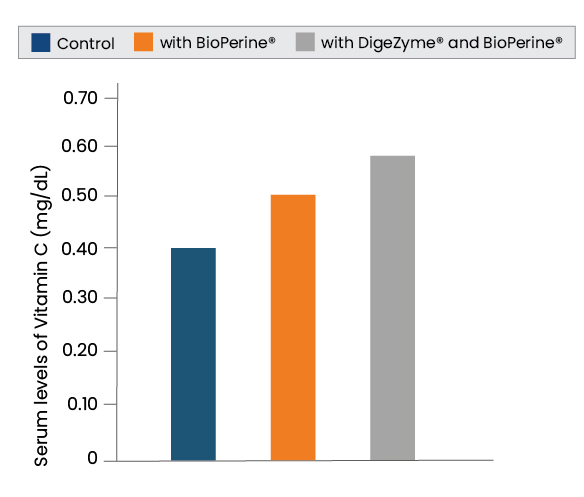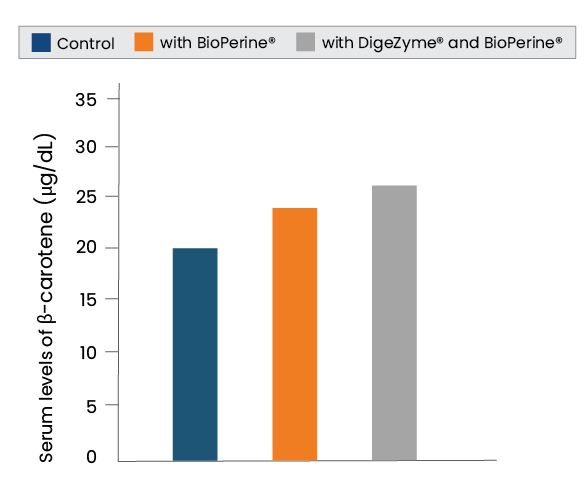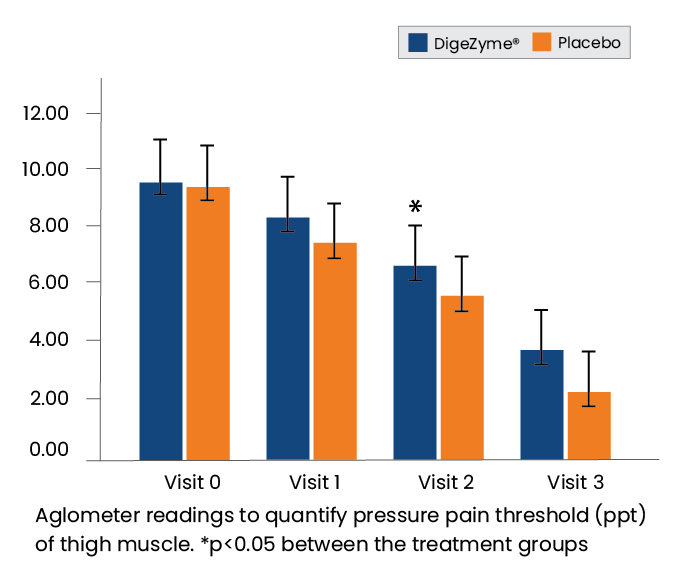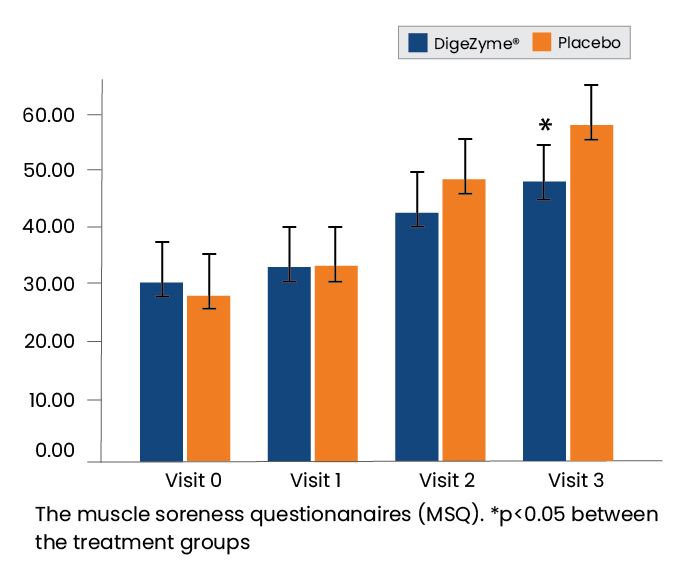Pilot Study
In a 5-day pilot study, relative bioavailability of micronutrients like Vitamin C and β-carotene in the presence of BioPerine® plus DigeZyme® or DigeZyme® alone was evaluated in healthy volunteers.
Each individual was provided with multivitamin/mineral capsule with or without BioPerine® plus DigeZyme® or DigeZyme® for 5 days.
This pilot study provided sufficient data to establish that DigeZyme® enhanced absorption of minerals and vitamins.


Efficacy Study
DigeZyme® in Sports and Delayed Onset Muscle Soreness: Results from a Double-blind, Placebo-controlled Clinical Trial
Delayed onset muscle soreness (DOMS), a particular type of muscle soreness, is a well-documented phenomenon, often occurring as the result of unaccustomed or high intensity eccentric exercise. Muscle shortening, enhanced passive stiffness, swelling, low on strength and power, localized soreness and disturbed proprioception are the common symptoms associated that often occur within 24 h post-exercise and lasting for 3–4 days.
To date, significant research has been done on the treatment of DOMS but none are satisfactory in preventing or treating DOMS. Drugs like NSAIDs (e.g. ibuprofen) are widely used but are known to impair and lengthen the healing process as well as cause various side effects making them no-so-fit.
However, studies have suggested that using enzymes could be a better alternative. Sitosterols, plant sterols and protease enzymes have been found to alleviate DOMS-associated pain and inflammation. Oral supplementation of protease enzyme has been known to improve injury recovery time.
In a recently published double-blind, placebo-controlled clinical trial efficacy of DigeZyme® in reducing pain associated with delayed onset muscle soreness (DOMS) induced by standardized eccentric exercise was evaluated. In this study, 20 healthy male participants were to receive either placebo or multi-enzyme complex capsule (50 mg) thrice a day for a period of 3 days.
Results suggested that that DigeZyme® was able to decrease the associated pain and tenderness induced by exercise. Decrements were also observed in McGill Pain Questionnaire showing high significance in the active arm (Fig. 1 and Fig. 2). There was also a declining trend in the level of pro-inflammatory biomarkers (creatine kinase and lactate dehydrogenase).


Reference: Majeed et al. Sports Nutr Ther. 2016; DOI: 10.4172/2473-6449.1000113
